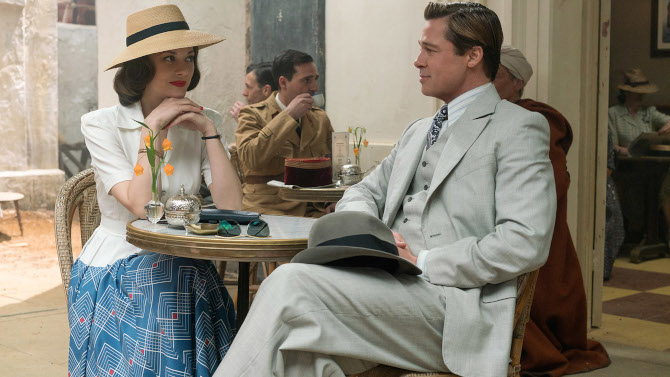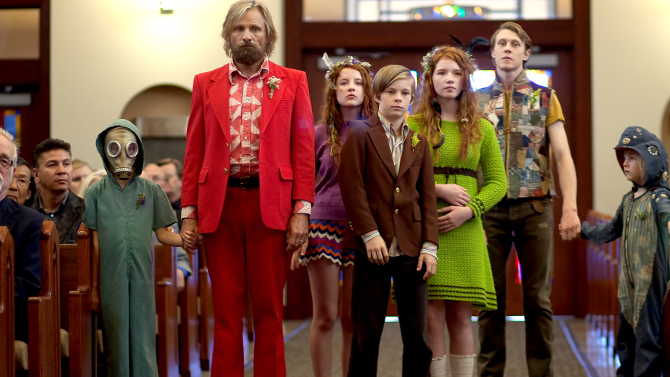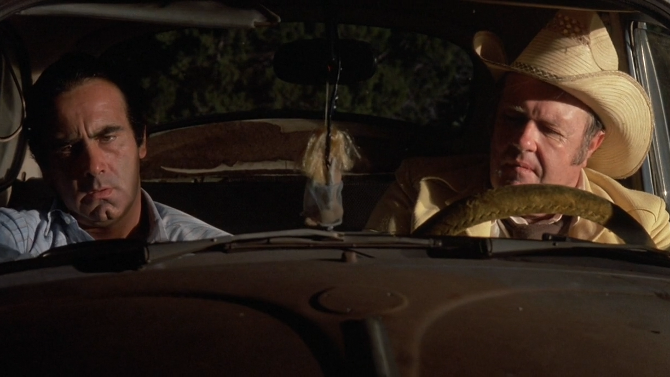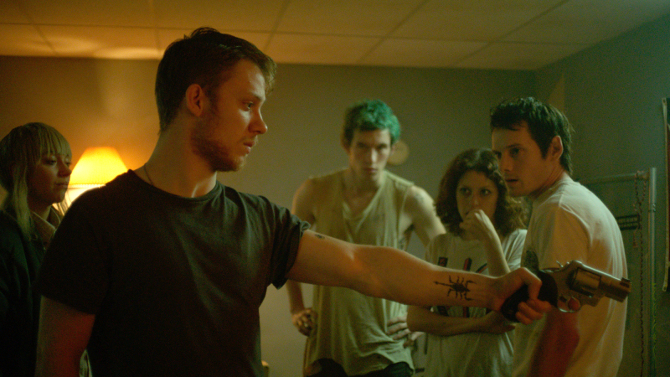
Déjà vu Dalliance
Channeling the mesmeric movies churned out by the studio system back in the 1930s and 40s, Allied (2016), directed by Robert Zemeckis, channels the likes of Morocco, Casablanca, Across the Pacific, Gilda, To Have and Have Not, and numerous others – attempting to find a spark from the classic themes of melodrama, romance, suspense and the epic nature of the annals of the cinematic past, with quite successful results. Set the year Casablanca and Across the Pacific were released – 1942, the story in fact starts in Morocco, with recently parachuted in Canadian spy Max Vatan (Brad Pitt) meeting up with another undercover agent, Marianne Beauséjour (Marion Cotillard), who will be pretending to be his wife.
-

Night Moves
Nocturnal AnimalsFebruary 28, 2017Some of you may recall famous clothing designer Tom Ford deciding to enter into the world of film making back in 2009. Though some were sceptical, his first foray into the movie business was a huge critical success, as A Single Man became one of the most lauded pictures of the year. Now seven years on, the choosy, multi-talented man has finally found another project that has piqued his interest. Based upon Austin Wright’s 1993 novel "Tony and Susan", Ford adapted it, changing the title to Nocturnal Animals. A complicated, three pronged tale, the story, at least in the real world, follows a wealthy art gallery owner named Susan Morrow (Amy Adams), a cold, calculating woman, who, despite seemingly having everything (a handsome husband named Hutton – Armie Hammer, a beautiful Hollywood hills house, good looks, and money), is empty and dead inside.
-

Jackie’s Legacy for John
JackieFebruary 24, 2017Unfurling the story that takes place immediately after the assassination of John F. Kennedy, 2016's Jackie is an intimate portrayal of a woman in a dreadfully surreal crisis. Delving into a horrifically memorable moment from the past that has seemingly been looked at in every which way, Jackie succeeds at developing a multilayered story that goes beyond the surface, and thought-provokingly brings up questions of fact versus fiction, history versus myth/legend, idealism versus realism, as well as finding stark stoicism in the face of unimaginable horror. And horror it is, as director Pablo Larraín weaves together multiple threads that create a somber, melancholic mood that teeters on realistic dread, dismay and terror. It is something that is hard to fathom – as it is unbelieve to imagine that any of us will ever experience such a dreadful incident that is then followed by overwhelming media attention and scrutiny. Though vulnerable, our main character is able to steady herself, finding a poised grace in order to stand strong, being a calm, enduring, mother-like figure that will help guide the nation through one of its darkest hours.
-

O Captain! My Captain!
Captain FantasticFebruary 17, 2017I have always been a big proponent of the education system teaching philosophy. When translated from its original Greek root words, we learn that it is best described as the love (philo) of wisdom (sophia), which is very much at the heart of the 2016 film Captain Fantastic – written and directed by Matt Ross. Towards the end of the motion picture, our main character, a multi-faceted father named Ben (Viggo Mortensen), is read a letter from his now deceased wife (her mother thinks he needs to hear it). At one point, she references the term ‘philosopher king’ – a concept adopted by Plato. For those of you who do not know of it, it was these people that he emphasized would rule his perfect utopia. Dedicated to the pursuit of knowledge and living a simple life, their ways were not that of bells and whistles (like most rulers, who live in extravagance and are catered to), but rather, to refrain from such things, educating themselves in the ways of wisdom and understanding the higher forms of knowledge.
-

Take the Long Way Home
LionFebruary 8, 2017A little ragamuffin – strong willed, feisty and wily, finds himself waking up on a bench at a train station with his older brother nowhere in sight. With his mother at home, he shouts for his missing brother, but nothing comes of it. He searches an abandoned train, only to fall asleep sometime in the night. When he wakes, the still empty train is moving. When it finally stops, he finds himself in Calcutta, nearly two thousand miles away from his hometown, not knowing the Bengali language or having anywhere to turn. It is this bizarre and unfortunate circumstance that is the genesis and heart of the story Lion, first time filmmaker Garth Davis’ moving drama. The young boy is Saroo (Sunny Pawar), his fatherly older brother is Guddu (Abhishek Bharate), and his caring impoverished mother is Kamla (Priyanka Bose). Though theirs is a tough life in a rural Indian town, filled with hardship and many struggles, love permeates their family.
-

Blood Simple. . . Anything But
Blood Simple.February 3, 2017With two feet firmly planted in the historic noir genre of the 1940s and 50s, Joel and Ethan Coen went about making their first feature film, Blood Simple.. Though it was not, by any means, that ‘simple’. Creating a trailer long before production (it has Bruce Campbell in it – who never appears in the final motion picture), strangely enough, it does not feel entirely compatible with their final product, but somewhat like a distant relation to the iconic cult horror classic Evil Dead. On the advice of Sam Raimi (director of the above mentioned movie – who helped advise the brothers), the Coen’s went door to door with a projector and their trailer, seeking out investors. Think of it as the original GoFundMe. In just over a year, they raised the needed capital and got to work on their film – which, in case you thought that I made a mistake up above, contains a period after ‘Simple.’. A striking neo-noir, the title comes from an old Dashiell Hammett novel, "Red Harvest", a term that highlights the muddled, jittery and anxious mindset of people who have had a protracted immersion in violent affairs.
-

Through the Green Door
Green RoomJanuary 29, 2017Providing us with a window into a more than hairy situation, writer/director Jeremy Saulnier in many ways thrusts us through said glass directly into a predicament that no one would want to be placed in. The movie is 2015's Green Room, a horror thriller that follows a struggling heavy metal punk rock band – its members being Pat (Anton Yelchin), Sam (Alia Shawkat), Reece (Joe Cole), and Tiger (Callum Turner), as they learn that their most recent gig has fallen through. Tad(David W. Thompson), a radio DJ, suggests they head to a small secluded club where his cousin Daniel can set up a performance for them. Desperate, the group, who are running very low on cash, take the tip, making the somewhat lengthy drive into the severely wooded area. More than pleased that they have a paid show, they don’t care that it is at a neo-Nazi skinhead bar, while youthful exuberance even has them daringly perform a cover of Dead Kennedys’ "Nazi Punks Fuck Off". Though some beer bottles are thrown (clearly pissing off the politically right leaning patrons), things turn out okay, with their original material eventually winning the crowd over.
